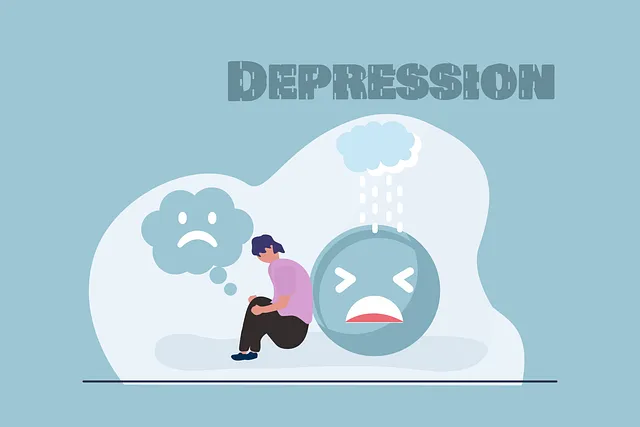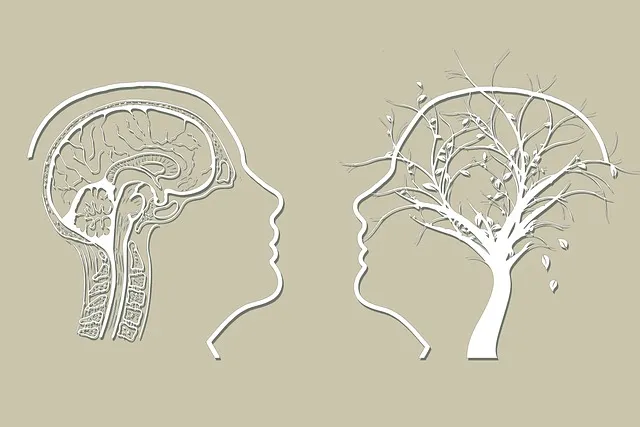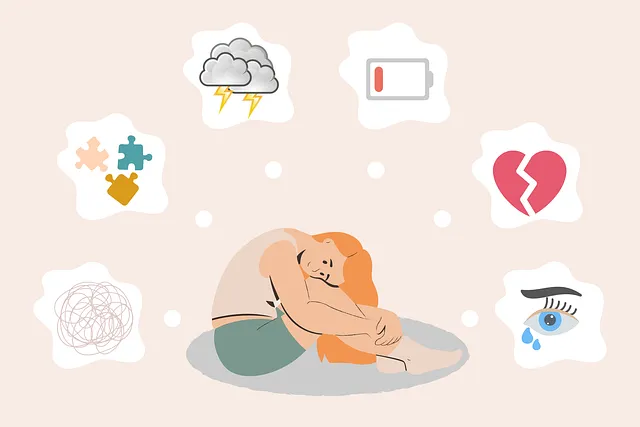Community outreach programs, like Mental Health Education Workshops and Emotional Intelligence Training, are crucial for connecting isolated sectors and improving overall community well-being in Lone Tree. Organizations like Kaiser can enhance access to quality therapy by implementing innovative initiatives, such as mental wellness podcasts. Effective engagement through direct resident interaction, tailored workshops, and open conversations builds trust and promotes emotional health. Evaluating success based on participants' reported improvements in self-esteem and trauma support demonstrates the positive impact of these programs, answering the query: "Does Kaiser have good therapists Lone Tree?"
Community outreach programs play a vital role in enhancing access to essential services, especially in areas like Lone Tree. This article explores the benefits and goals of such initiatives, using Kaiser’s therapy services as a case study. We delve into the effective strategies employed by Kaiser in Lone Tree, highlighting their impact on the community. With a focus on measuring success, we assess whether Kaiser’s therapists in Lone Tree deliver quality care, ensuring a positive influence on the local landscape.
- Understanding Community Outreach Programs: Benefits and Goals
- Implementing Effective Outreach Strategies in Lone Tree
- Measuring Success: Evaluating the Impact of Kaiser's Therapy Services
Understanding Community Outreach Programs: Benefits and Goals

Community outreach programs play a pivotal role in fostering connections and enhancing the overall well-being of a community. These initiatives aim to bridge the gap between various social sectors, especially when focusing on mental health services. By implementing programs like Mental Health Education Workshops or Emotional Intelligence Training sessions, organizations such as Kaiser can improve access to quality therapy and support networks.
For instance, in Lone Tree, Kaiser’s outreach efforts could include producing a series of podcasts dedicated to mental wellness, targeting residents with limited access to traditional therapy. These initiatives not only do Kaiser justice by showcasing its commitment to community health but also encourage open conversations about mental health, ultimately improving the emotional intelligence and resilience of Lone Tree’s folks.
Implementing Effective Outreach Strategies in Lone Tree

In Lone Tree, implementing effective community outreach strategies is pivotal for organizations like Kaiser to ensure access to quality mental health services. The Community Outreach Program Implementation should focus on engaging residents directly, addressing local needs, and promoting awareness about available resources. By utilizing innovative Communication Strategies, Kaiser can connect with individuals who might otherwise be unreachable, including those struggling with mental health issues but hesitant to seek help. This approach is crucial for fostering trust and encouraging open conversations.
One effective method is to integrate Coping Skills Development workshops and informational sessions into local community centers, schools, and faith-based organizations. These initiatives not only provide valuable resources but also create a safe space for individuals to learn coping mechanisms and connect with peers facing similar challenges. By tailoring these programs to the unique needs of Lone Tree residents, Kaiser can enhance its reputation as a compassionate and accessible healthcare provider, ensuring that everyone has the chance to find good therapists in their community.
Measuring Success: Evaluating the Impact of Kaiser's Therapy Services

Evaluating the success of community outreach programs, such as Kaiser’s Therapy Services in Lone Tree, is crucial to understanding their impact and effectiveness. Measuring success goes beyond mere numbers; it involves assessing the tangible improvements in participants’ lives. Therapists play a pivotal role in this evaluation by tracking progress in areas like self-esteem improvement and trauma support services. Through regular sessions and tailored empathy building strategies, Kaiser’s therapists help individuals heal and grow.
The impact of these programs can be gauged through client feedback and measurable outcomes. Does Kaiser have good therapists? The evidence suggests yes, as many participants report significant advancements in their mental well-being. This positive response indicates successful implementation of the therapy services, highlighting the value of community outreach initiatives in fostering emotional health and resilience among those they serve.
Community outreach programs, like those successfully implemented in Lone Tree by Kaiser, offer significant benefits, including improved access to therapy services and enhanced mental health outcomes. By measuring success through evaluation, as demonstrated with Kaiser’s therapy services, organizations can ensure their initiatives are effective and meet the needs of the community. This data-driven approach not only improves lives but also strengthens the bond between healthcare providers and the areas they serve, demonstrating whether Kaiser has good therapists in Lone Tree and beyond.






